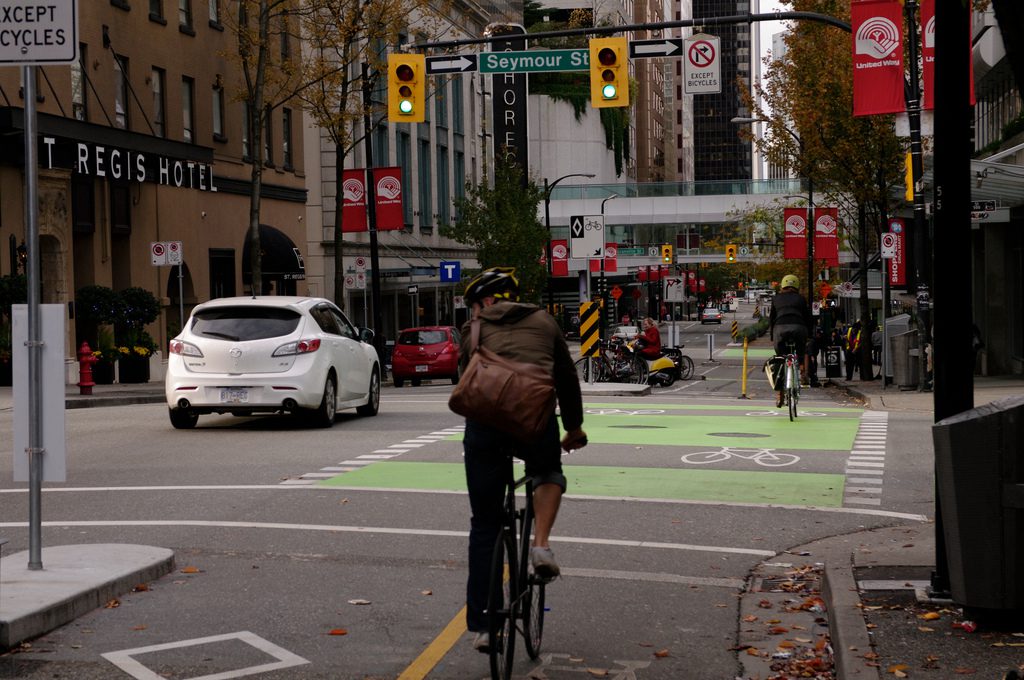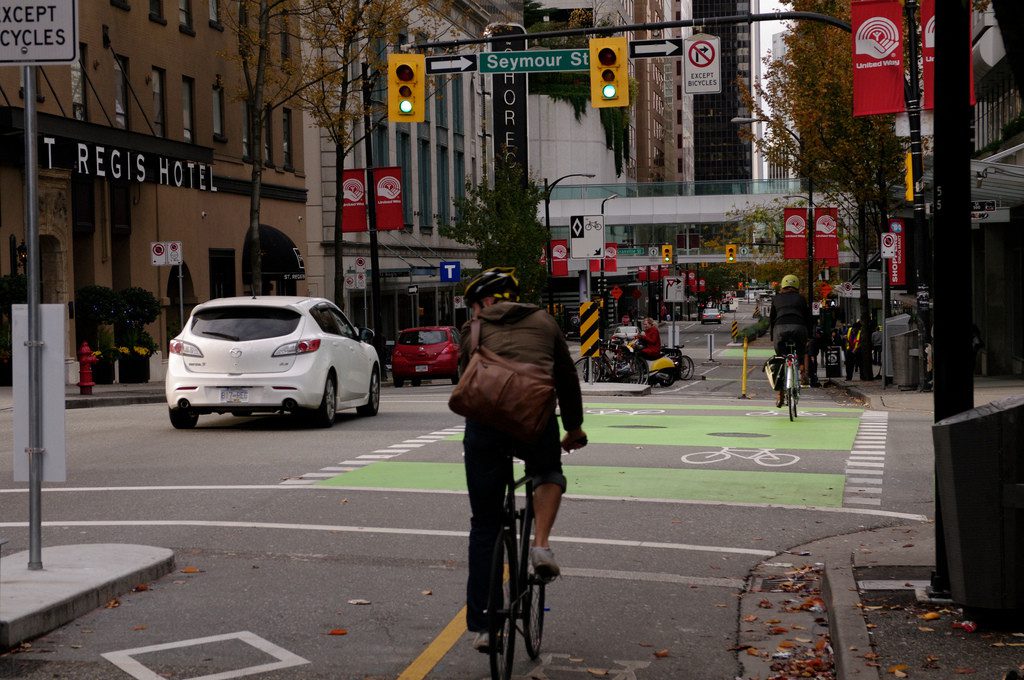B.C. lawyer seeks bike-friendly changes to Motor Vehicle Act, says law doesn’t reflect cycling
One B.C. lawyer is championing cycling in the province by pushing for changes to the Motor Vehicle Act, saying that the legislation's language should better reflect that bikes, too, are an integral part of traffic.


One B.C. lawyer is championing cycling in the province by pushing for changes to the Motor Vehicle Act, saying that the legislation’s language should better reflect that bikes, too, are an integral part of traffic.
The bill, which has been British Columbia law since 1957, was last amended to include — if broadly — the rights and responsibilities of cyclists in 1996. Still, said David Hay, chairman of the Motor Vehicle Act Legislative Review Committee, even those changes are out of date by now. Cycling has skyrocketed province-wide in the last nineteen years, but the legal language of the Motor Vehicle Act still treats two-wheel travel as something of a recreational afterthought. Even changing the name would be a step forward, he said.
“The name itself is biased,” Hay said. “It’s inherently favourable to people who aren’t vulnerable road users.” Instead, calling it “The Road Safety Act,” as Hay is advocating, would more appropriately reflect the makeup of B.C. traffic as it exists in 2015.
Along with changing the law’s name, Hay also wants to see a few cycling-related concerns reflected in the legislation, too — issues that are strikingly absent in its current form. Prohibiting passing on the right, requiring that drivers give cyclists a metre’s clearance at least, increased fines, and provisions for allowing cyclists to ride side-by-side — something common in Europe, he said, that increases riders’ visibility — are all important updates that Hay wants to see made. With a couple of those changes already implemented in Ontario, a precedent exists that, if applied in B.C., would see cycling enshrined more equally as a viable, legitimate mode of transportation. Doing so, Hay suggests, would bring the province more in step with a changed status quo — and address other related issues, too.
“We have to start to accommodate more trips to work,” Hay said. “We have to start to look at congestion, and climate change. We have to look at the big problems we face in society.”
Still, Hay believes the provincial government has progress in mind, too, and will be receptive to the idea of more evolved traffic safety legislation. “I think the government recognizes that we face a future that’s entirely different from the past,” he said — a future in which bikes are key.
